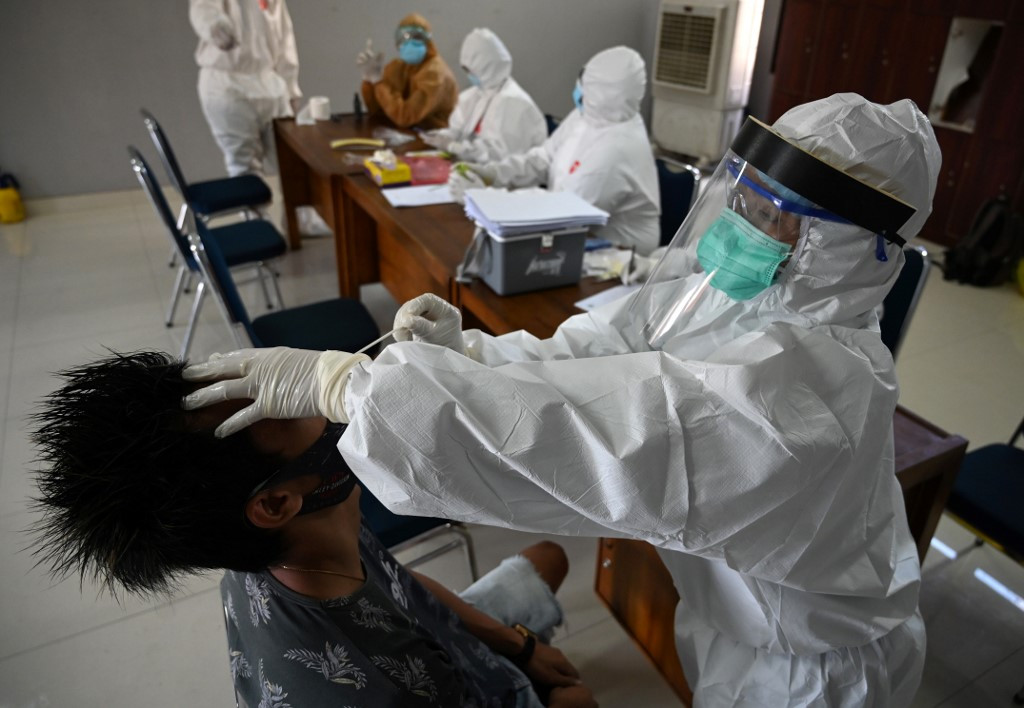Popular Reads
Top Results
Can't find what you're looking for?
View all search resultsPopular Reads
Top Results
Can't find what you're looking for?
View all search resultsIndonesia records spike in COVID-19 cases as govt eases restrictions
The government announced 1,241 new confirmed cases on Wednesday, surpassing the previous all-time-high of 1,043 new cases recorded the previous day, with 36 news deaths and 715 newly recovered patients also recorded.
Change text size
Gift Premium Articles
to Anyone
T
he number of daily recorded COVID-19 cases in Indonesia has continued to increase in the past five days as the government gears up to implement the so-called "new normal" measures and eases large-scale social restrictions (PSBB).
The government announced 1,241 new confirmed cases on Wednesday, surpassing the previous all-time-high of 1,043 new cases recorded the previous day, with 36 news deaths and 715 newly recovered patients also recorded.
In total, the country has recorded 34,316 confirmed cases with 1,959 fatalities and 12,129 recoveries so far.
The Health Ministry's disease control and prevention director general, Achmad Yurianto, said that East Java had recorded the highest increase at the provincial level with 273 new cases, followed by South Sulawesi with 189 new cases, Jakarta (157), Central Java (139) and South Kalimantan (127).
He added that 15 provinces had reported less than 10 new cases and six areas reported no additional cases.
Since Saturday, the country has continued to record high numbers of new cases, with 993 recorded on Saturday, 672 on Sunday, 847 on Monday and 1043 on Tuesday. The new cases were mainly recorded in East Java, South Sulawesi, South Kalimantan and Jakarta.
The spike in cases may have been caused by the central government’s and several regional administrations’ decision to gradually ease PSBB measures before eventually reopening economic activities under the “new normal” policy.
Yurianto, however, claimed that more “aggressive” contact tracing conducted by the government was the reason for the increase.
"The new cases mostly came from the testing of samples sent by community health centers [Puskesmas] and regional health agencies. It has not been dominated by samples from hospitals," he said during a press conference on Wednesday.
"Overall, we can see that cases are still increasing. But if we see the distribution per province, most of them are, in fact, already in a stable condition," he went on to say.
Jakarta, one of the first provinces to ease restrictions, began its transition phase on June 5, with the capital set to gradually reopen public places, offices and factories.
Governor Anies Baswedan decided to start the transition period on this date because many parts of Jakarta have now downgraded from red zones to green or yellow zones, indicating a decline in the number of new COVID-19 cases.
East Java has recorded an increasing number of COVID-19 cases, with its capital Surabaya recording more than 3000 cases.
Meanwhile, the governor of South Sulawesi claimed on Wednesday that there were more green zones than red zones in the province, despite the increase in daily new cases, kontan.co.id reported.










